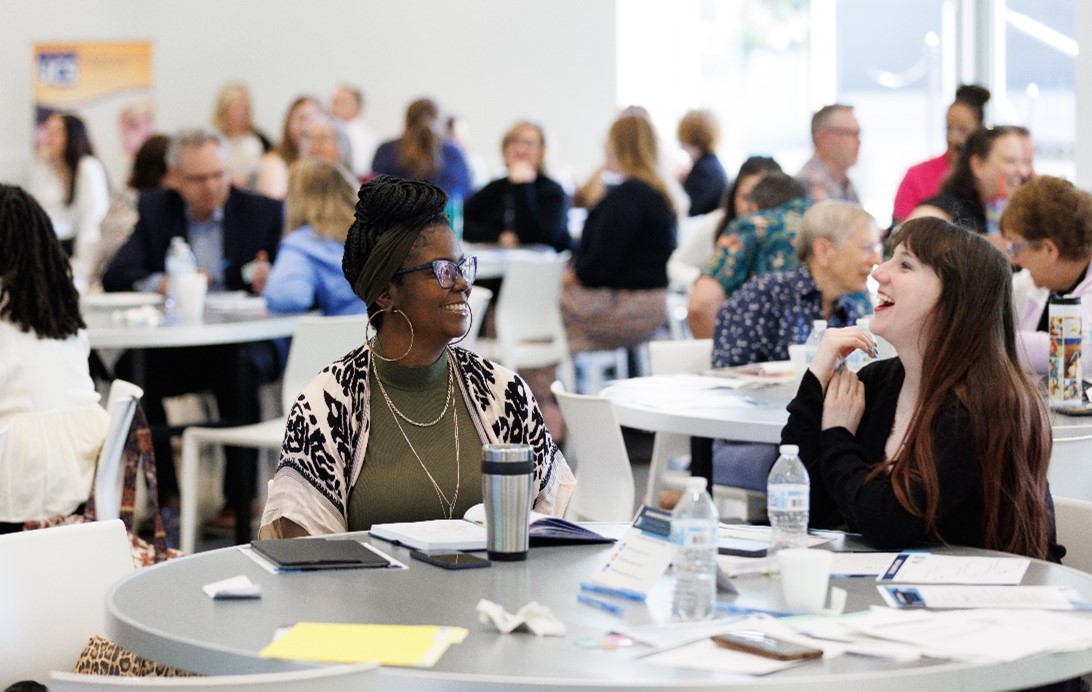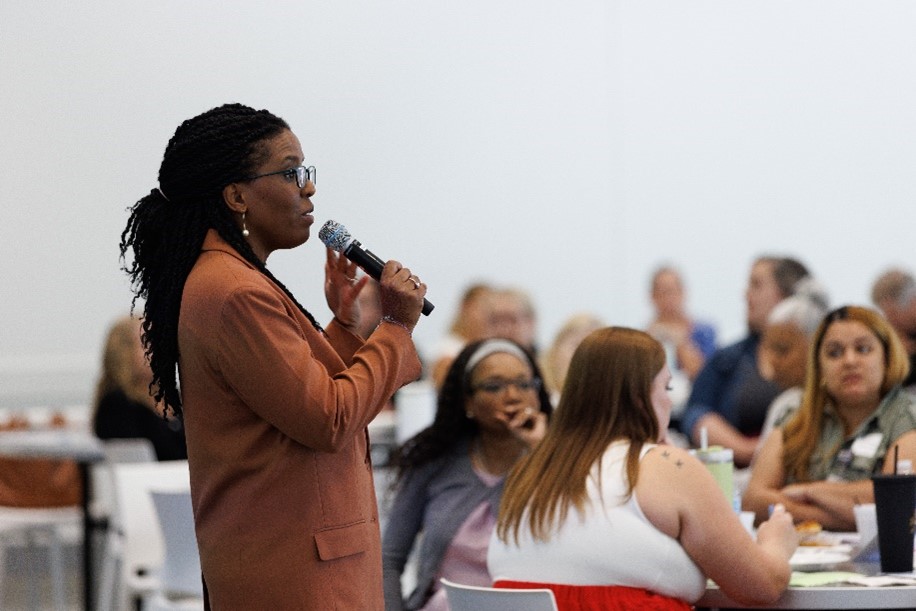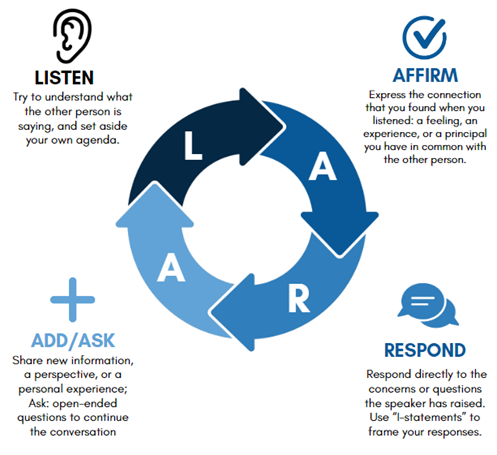2024 UCS Human Service Summit
Dismantling Division, Strengthening Community

Nearly 150 attendees came together for the UCS 2024 Human Service Summit, where the theme of the day was “Dismantling Division, Strengthening Community.” This year’s Summit aimed to address three key questions:
- How does our brain shape our biases?
- What role does bias play in conflict and division?
- How can we act to create positive change?
Participants explored the impact of biases on community cohesion and how we can manage these biases to build stronger, more inclusive communities. UCS Executive Director Kristy Baughman kicked off the morning with a brief data presentation that explored the depth of partisan division. The data showed that the division in our communities today goes beyond policy disagreements, with each side labeling the other side with negative characteristics such as laziness, dishonesty, and immorality. This led to a conversation about spiraling assumptions and a presentation about bias and the brain.
 Kathryn Evans, President of Rooted Strategy, introduced participants to three ways of understanding bias: bias as a function of the brain; bias that is shaped by social needs and experiences; and bias that is reinforced by structures in society. Kathryn also unpacked the process of “othering” which is the way we distinguish and divide between “us” and “them.” Evolutionarily, our brains’ abilities to use bias and assumptions contributed to survival and connection with immediate community; today, they can serve to isolate us from valuable experiences and further separate us from members of our community. Kathryn laid the foundation for highlighting the importance of bridging divides and the benefits of creating relationships across difference.
Kathryn Evans, President of Rooted Strategy, introduced participants to three ways of understanding bias: bias as a function of the brain; bias that is shaped by social needs and experiences; and bias that is reinforced by structures in society. Kathryn also unpacked the process of “othering” which is the way we distinguish and divide between “us” and “them.” Evolutionarily, our brains’ abilities to use bias and assumptions contributed to survival and connection with immediate community; today, they can serve to isolate us from valuable experiences and further separate us from members of our community. Kathryn laid the foundation for highlighting the importance of bridging divides and the benefits of creating relationships across difference.
Building on this theme, Kristy Baughman led a panel discussion focusing on overcoming bias through courageous conversation. The panelists, Leslie Walton, Contract Specialist for the City of Leawood Public Works, and Paul Lyons, former Overland Park City Council member, met when they participated in UCS’ Racial Equity in Communities (REIC) program. First launched in 2021, REIC is a six- to eight-month program that provides a customized series of workshops and technical assistance for residents, staff, and elected officials from jurisdictions in Johnson County. Leslie and Paul came together during REIC with very different lived experiences and very different perspectives, and shared with Summit participants how they had turned their assumptions into understanding and a valuable friendship.
Kathryn Evans and Kristy Baughman then turned to providing Summit participants with a practical tool to help interrupt biases and assumptions, the LARA method. The LARA method is a dialogue model that can be used when engaging in conversations around difficult topics. This model aims for understanding and continued dialogue, rather than agreement or persuasion. The LARA model includes four components: Listen, Affirm, Respond, and Add/Ask. Kristy and Kathryn introduced the method and modeled a productive conversation following the four steps. Participants were then given time to practice the method themselves. UCS’ call to action for participants is to practice using the LARA model to interrupt bias in their conversations and communities.


